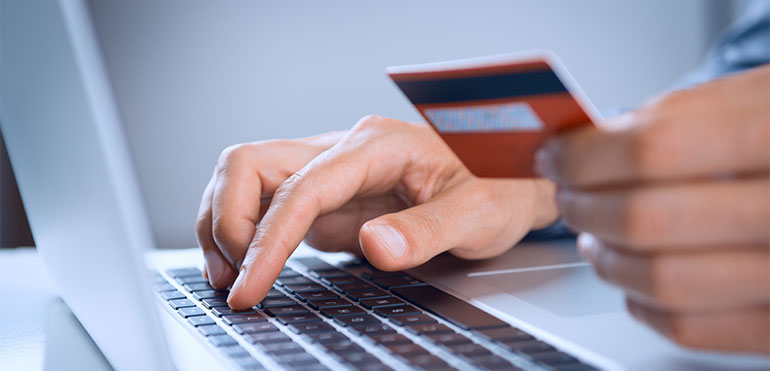As long as you follow one simple rule: pay your balance in full each month, using a credit card to pay bills makes sense in order to accrue rewards or better manage your finances. If you're paying bills with a credit card because you can't afford to pay them with cash from your checking account, it's a sign of a larger financial problem that will only get worse if you make it a habit.
Pay off your existing credit card balance before switching to using it to pay your bills. You'll start with a zero balance and be able to avoid paying interest by taking advantage of the credit card's grace period.
In any other case, finance charges will be applied to your balance each month if you pay your bills with a credit card that has a balance and will raise the cost of doing so.
Using a Single Card
When you use just one credit card to pay all of your credit-card-payable bills, it's much easier to keep track of them all. Choose the credit card that offers the best rewards potential as well as the highest credit limit. The more credit cards you use to pay bills, the more difficult it is to keep track of and manage all of your charges. It's not impossible, but you'll need to be more diligent about keeping track of your current balances and ensuring you're not overspending.
It's critical to double-check that your bill-paying credit card has enough credit to cover all of the new charges. If you haven't authorized your credit card issuer to allow overdraft charges, they can't charge you a penalty fee for exceeding your credit limit. They may punish you in other ways, such as lowering your credit limit or increasing your interest rate. If you want to, making monthly payments on your bill-paying credit card can help you free up extra credit throughout the month.
Keeping an Eye on Your Checking Account
Just because you're paying your bills with a credit card now doesn't mean you can spend your checking account funds. Remember that you must have this money on hand to pay off your credit card balance in full when the due date arrives. You'll avoid debt and credit card interest this way.
Keep track of your credit card and checking account balances throughout the month to ensure you'll be able to pay off the card when it's due.
Keeping Convenience Fees at a Minimum
When you pay your bill with a credit card, some businesses, particularly utilities, charge a so-called convenience fee. You may want to pay the fee with your checking account rather than a credit card, depending on how much it costs. These fees can add up quickly, making your rewards-points-generating strategy less profitable.
When You Don't Have Access to a Credit Card
Some bills are unlikely to be paid with a credit card. For instance, certain property managers won't let you use a credit card to pay your rent. Larger property management companies are more likely to accept credit cards than landlords with a single or few properties, but they may charge a convenience fee. Credit cards are commonly used to pay for cell phone and cable/internet bills. Some utilities will even allow you to do so without charging you a fee.
Companies that allow you to pay your bill with a credit card usually allow you to do so online or over the phone. Your credit card number, expiration date, and at the very least, your billing zip code will be required. While most businesses only need the security code on the back of your credit card, some will also need your complete billing address (or the front of your American Express).
Don't be tempted to pay bills with a credit card convenience check if you can't put them on your card. Convenience checks are treated as cash advances, and your credit card company is unlikely to reward you for cash advances. Furthermore, you will be charged a cash advance fee on the transaction and interest beginning the day the check is cashed.
Your Credit Score is Affected
Depending on how you use your credit card, paying bills with it can either help or hurt your credit score. Your credit score can be harmed by maxing out your credit card and failing to make credit card payments. Your credit score improves when you pay your bills on time each month.
Questions and Answers (FAQs)
With a credit card, how do you pay your bills?
It's usually as simple as finding the "pay your bill" button online and entering your credit card information on the payment screen to pay your bills with a credit card. Autopay is also available for many bills.Your credit card will pay your bills for you if you link it to the autopay feature up until the point at which you decide to change your payment preferences.
Which is safer: a credit card or a bank account for paying bills?
Although linking your bank account to a reputable utility company is generally safe, credit cards provide additional fraud protection in almost all cases. The government sets limits on how much you can be held personally liable for when your debit or credit card is used fraudulently, and credit cards provide the best protection. If the number on your credit card is stolen, not the card itself, you are not liable for fraudulent purchases.


